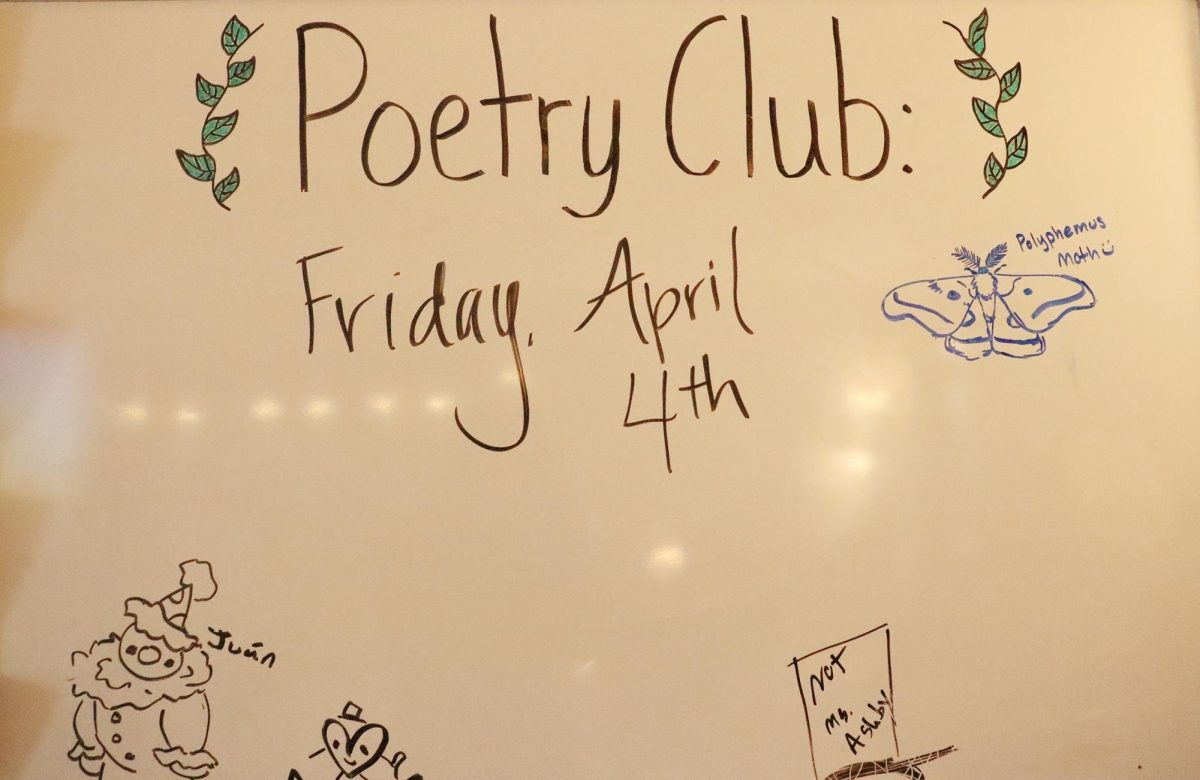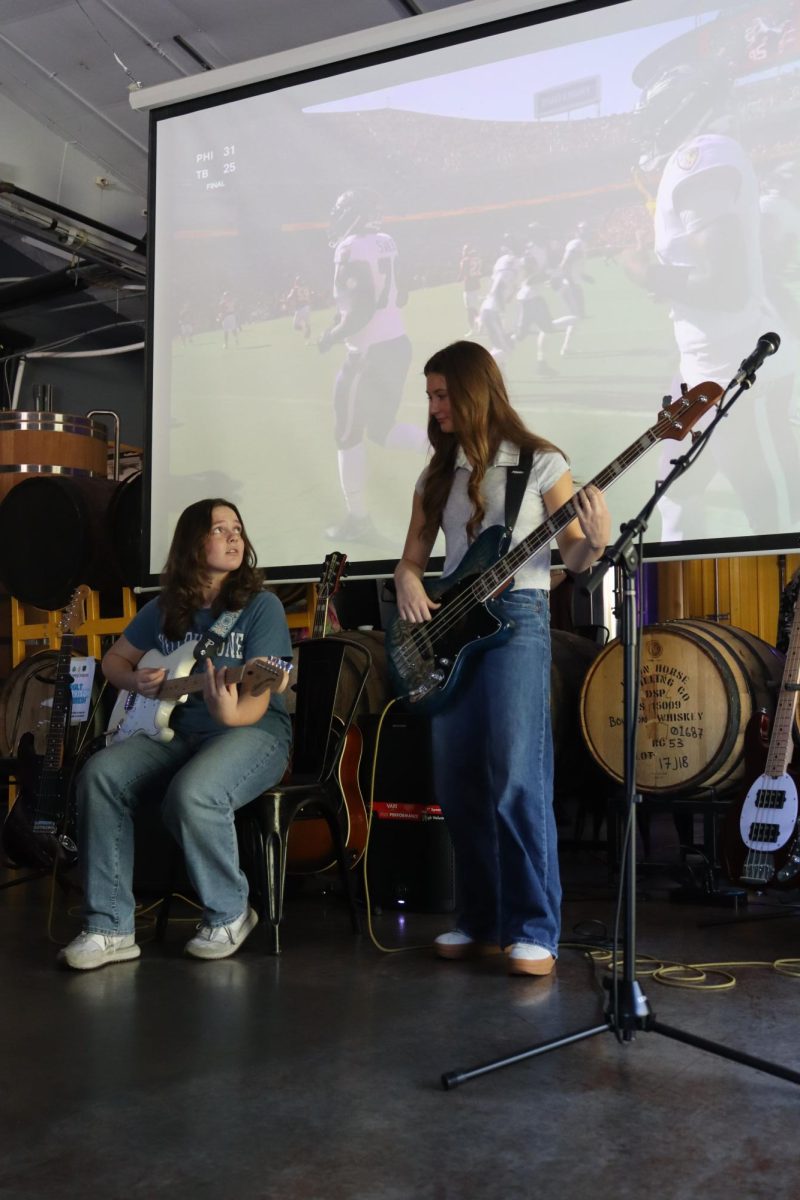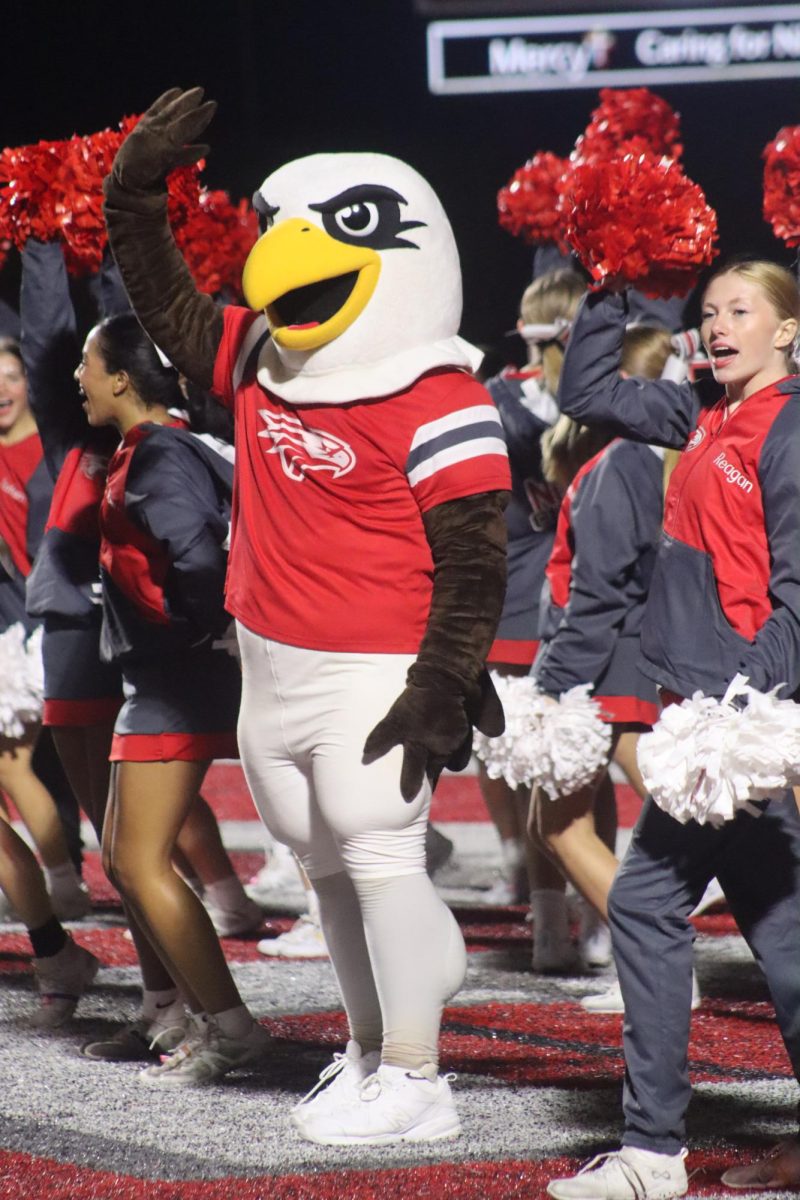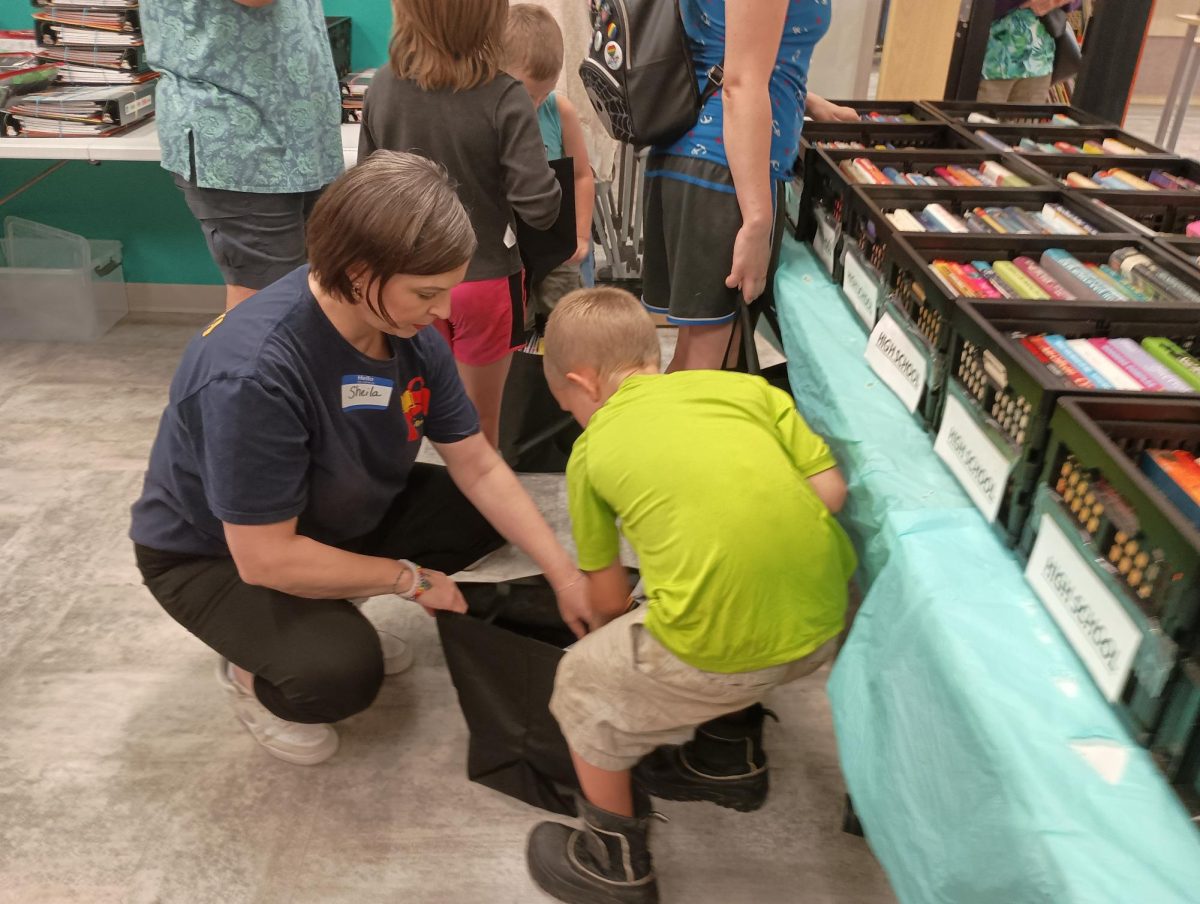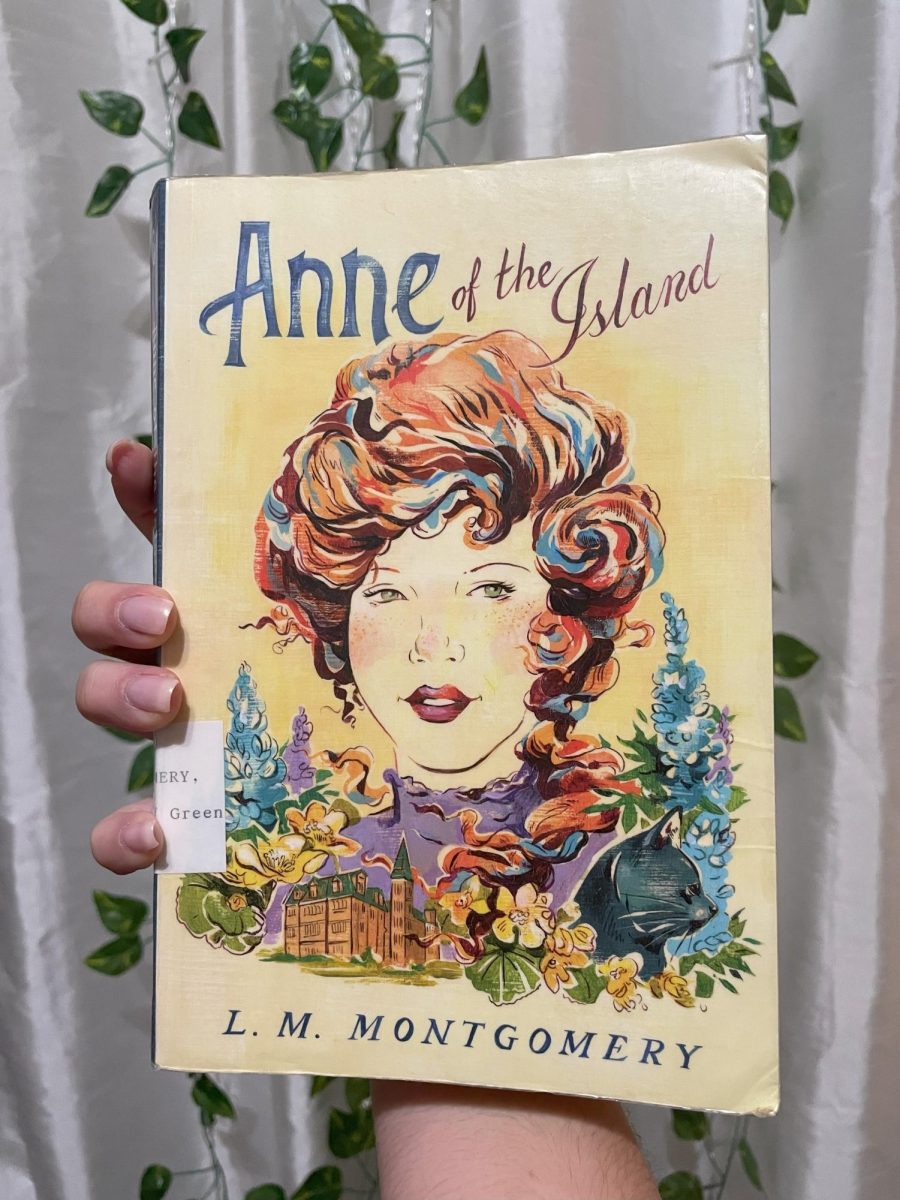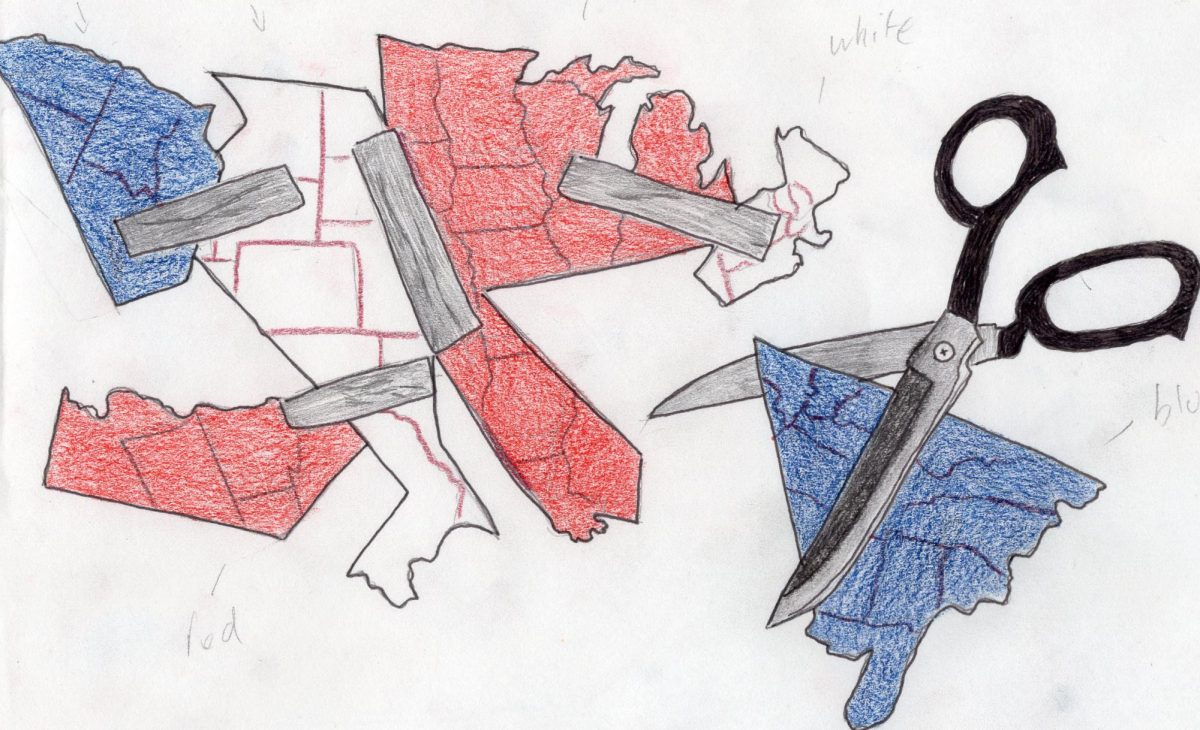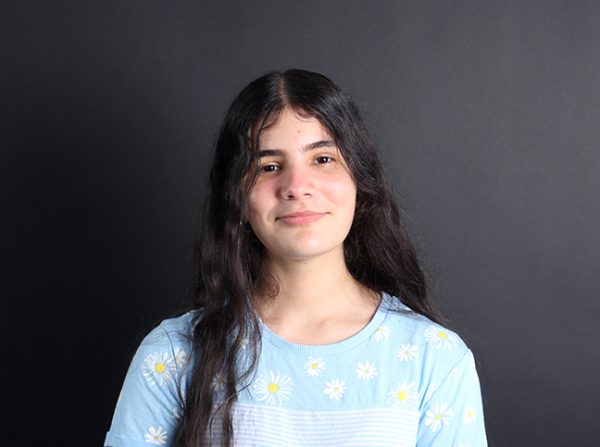The Writers’ Guild club provided Nixa High School writers a safe space to improve their skills and share their work. It created a magazine that published the work of the students. Despite it still no longer being a club, a safe atmosphere for writers can still be found in the Poetry Club.
Past Writers’ Guild member Raegan Allen, a 2019 NHS graduate, is now the marketing lead at Open Book Publishers. She said that the most valuable things she learned during her time in the club were to receive, interrogate, and implement feedback on her work.
“It is difficult to read a poem you have written in the dark of your bedroom in the cold fluorescent lighting of a classroom in front of people you may or may not know,” Allen said. “At university, I did this every week for four years. Writers’ Guild had prepared me for the agonies and ecstasies of this kind of vulnerability.”
She currently lives in London.
“I enjoyed the carefree yet disciplined environment that Mr. Lawless was able to cultivate,” Allen said. “We were always playful and silly but there was no question we took one another’s work very seriously.”
She joined because she wanted to create a literary magazine that published the work of the students in the club. Under Allen’s leadership, Writer’s Guild published Sonder – a creative writing magazine.
“When [we] collected the copies of the first edition from the print shop, we were almost giddy,” Allen said. “Here was the physical evidence of our collective hard work, of every tiny decision we had made along the way. Here was a testament to the enormous talent Nixa students possess. Flipping through those pages for the first time – that is a feeling I won’t forget.”
English teacher Shane Lawless said that most kids who join a writing club prefer to solely write, rather than focusing on publishing.
“It’s about finding the overlap kids,” Lawless said,” or by… maybe working together [journalism students and creative writing students] more, which is something that Ms. Eggleston had talked to me about … back when we used to make the magazine.”
Writers’ Guild had trouble keeping its momentum, and Sonder did not last.
“We’d always have lots of people show up at the beginning of the year,” Lawless said. “Then, after a couple months, there would be two or three, maybe four people showing up to a meeting because people got busy, other people were involved in other clubs and so on and so forth.”
Writers’ Guild disintegrated. A writing community can still be found in the Poetry Club, founded three years ago. It takes place on Fridays after school until 3:30 at room 320.
English teacher Briana Ashby is the Poetry Club’s sponsor. Her favorite poets are Charles Bukowski and Mary Oliver.
“We start with a personal check-in question so each member gets to share a bit about life and how their poetry practice is going,” Ashby said. “Then, we tend to either have an activity that guides a new exploration in a type of poetry/subject matter or a free-write time. We end our meetings by allowing anyone who wants to share their work with the group to do so.”
Senior Jocelyn ‘Eren’ Farrell recommends it to people who like to either write or listen to poetry. Her favorite poet is Elizabeth Willis.
“[It’s] a really nice, safe space,” Farrell said. “We can all share our thoughts and views [with] other people. If you want to write freestyle stuff; you want to write about your thoughts and feelings, go for it. Not to say that our club is like a therapy session, but, if you need an outlet, it’s pretty good for that.”
The Poetry Club helps students connect with their classmates; Farrell enjoyed the day when they went outside, sat in a circle and just talked.
“I enjoy seeing students from vastly different backgrounds and interests come together and build bonds over words,” Ashby said. “Absolutely beautiful.”




